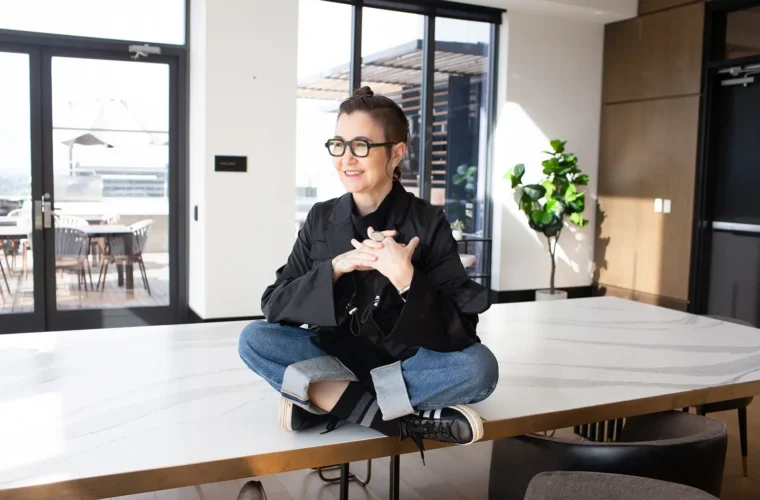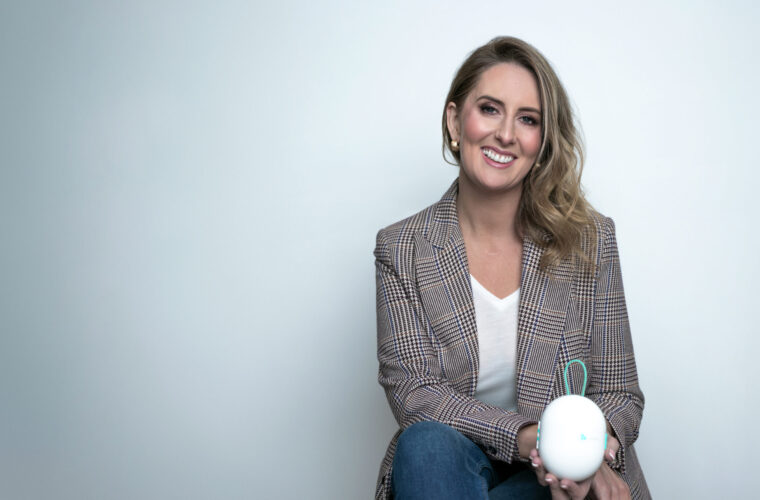Kids tech: With tech jobs booming globally, an increasing number of educational institutions are adding modules such as coding, programming, software skills and more to the curriculum. According to a study by SMART Technologies, almost three-quarters of schools in the UK are now embedding technology in everyday teaching and learning practices. In addition, the Bureau of Labour Statistics figures reveal that employment for software developers and testers is expected to grow by 25 percent by 2031.
One female founder looking to help kids learn all about technology before reaching University is Fatbardha Dallku, Co-Founder and CEO at Innovation Academy. She helped establish her institution, which is based in Kosovo, with her husband after realising a sizable tech knowledge gap among children. With so many jobs in innovation coming onstream, the pair joined forces and established their organisation in 2019. We caught up with Fatbardha Dallku and asked her about the Innovation Academy, juggling motherhood with entrepreneurship and her plans for expansion.
Many thanks for taking the time to speak with us today. First of all, can you please tell us what Innovation Academy is exactly?
The Innovation Academy is a dedicated educational institution based in Kosovo that features classrooms, labs, and facilities designed to foster learning and innovation among children. Established in 2019, our mission is to empower the youth of Kosovo by providing them with the 21st-century skills, critical thinking abilities, and innovative mindsets needed to help them excel in the modern world. Our vision is to inspire and develop future leaders, innovators, and entrepreneurs who will shape a better tomorrow.
We offer a wide range of tech-specific programs, including coding and programming courses, digital innovation labs, languages, and more. Each is designed to provide hands-on experience in cutting-edge technology. We are proud to say we play an important role in bridging the technological gap and creating opportunities for youth in Kosovo and beyond.
Where did the concept for the Academy stem from?
The Innovation Academy concept was developed after noticing a clear gap in state educational schools. My partner and I found that technology education was falling behind the demands of the modern world. We recognised the urgent need to improve technological skills among students in Kosovo, particularly as the global labour market continues to become increasingly competitive and dependent on tech expertise.
In Kosovo, the labour market has been evolving rapidly, with a growing number of outsourcing companies establishing operations. These organisations are often seeking skilled individuals proficient in coding and software development and are looking to hire for other tech-driven roles. Unfortunately, many students graduating from traditional schools lack the necessary skills to compete effectively. Our goal was to address this gap by creating an academy that equips students with a high level of technical knowledge and prepares them to think innovatively and globally.

You mentioned programming; what else did you do prior to setting up the Academy?
Before setting up the company, I had extensive experience in the tech industry. During my studies, I interned at Robert Bosch in Germany. During my third year, I gained valuable insights into the application of technology in a global context. I then progressed to programming. Meanwhile, my co-founder brought a wealth of experience from working in various universities and educational institutions across Kosovo. Together, we combined our technology and education expertise to create something impactful as part of wider efforts.
Initially, we imagined the Academy as a part-time project. It was a way of sharing our knowledge and passion while maintaining our full-time jobs. However, the overwhelming interest and number of students made it clear that the demand for such an initiative was far greater than we had anticipated!
Just before our interview, you mentioned being a mother. How do you balance being a tech entrepreneur with motherhood? Do you have any tips for readers?
I am a mother of two, and balancing entrepreneurship with motherhood is challenging! There are nights when I barely get any sleep through juggling responsibilities both at home and the Academy. But when I meet my students, their enthusiasm and progress give me a renewed sense of energy. To me, it’s about pushing forward and continuing to work hard despite the challenges. I’m fortunate to have my husband, who is also my co-founder, by my side. His support at home and within the Academy has been invaluable in making this journey possible. Together, we’ve created a partnership that allows us to navigate both our personal and professional lives as a team.
Would you have any advice for other mums looking to set up their own tech company?
To other mums considering setting up their own tech business, my biggest piece of advice would be to believe in yourself and your vision. It’s absolutely possible to thrive as both a parent and a business owner, but it requires determination and a willingness to embrace the challenges.
I’d advise any female entrepreneur to start small but think big. Taking that first step, no matter how small, will enable you to build your idea gradually while keeping your bigger vision in focus. Another tip – time management is key. I think it’s really important to prioritise tasks and establish boundaries between work and family life. It won’t always be perfect, but a plan can make all the difference. Another piece of advice would be to ask for help. Entrepreneurs don’t have to do everything independently; it’s good to lean on support systems such as family, friends, etc. Staying flexible, motivated, and loving what you do are hugely important!
Back to the Innovation Academy, how about funding? Was it challenging to get investors on board?
Well, we haven’t received any external funding or investors. We’ve built the Innovation Academy entirely on our own! This approach allowed us to maintain full control over our vision and direction. However, as we continue to grow, we are actively seeking funding and partnerships to take the Academy to the next level. Our goal is to expand not only locally but also internationally.
We’ve already taken a significant step by franchising the Academy in Albania, and we see this as a great model for future growth. To scale even further, however, securing investment will be essential, and we’re working hard to attract the right partners who share our passion for education and innovation. We believe that with the right support, we can bring the Academy’s unique approach to more regions and create opportunities for students around the world.
Can you please tell us about some of the tech-led programs you run?
We currently offer a variety of tech-led programs designed to inspire and equip students with the skills needed for the future. One of the highlights of last year was CodeFest, an event we organised that attracted over 2,000 visitors. It was a celebration of coding, innovation, and creativity, where students had the chance to showcase their skills and learn from industry experts.
In your opinion, what are the biggest challenges facing today’s female founders?
In my opinion, the biggest challenges facing today’s female founders are largely rooted in systemic barriers, societal expectations, and industry biases.
Women, especially mothers, often face societal pressure to balance professional and personal responsibilities in a way that men may not experience to the same degree. This can create unrealistic expectations that leave little room for women to focus on growing their businesses. It’s important to create a culture of support where both men and women are equally encouraged to pursue their careers while managing family life. More flexible working environments and shared responsibilities at home can help create a more level playing field.
There is also the challenge of being taken seriously in male-dominated industries such as tech. Female founders often have to work harder to prove their expertise and credibility, which can be exhausting and discouraging. By supporting each other, building strong networks, advocating for greater representation, and seeking mentorship, female founders can overcome these barriers and create a lasting impact in the business world.
Are there any new trends in technology that you hope to teach kids about in 2025?
In 2025, we plan to introduce our students to several emerging technologies that are shaping the future. These technologies not only have the potential to revolutionise industries but also offer exciting opportunities for creative and innovative minds. Some of the key trends we hope to teach kids about include Artificial Intelligence, Augmented Reality, Virtual Reality (VR) and Sustainable Technology. By incorporating these emerging technologies into our programs, we hope to equip our students with the knowledge and skills to navigate the future and be at the forefront of creating it.
Can you please tell me about your ambitions for the Academy next year?
We have exciting plans for the Academy in 2025. We are expanding to new regions across Europe and launching online programs for the diaspora. In addition, we hope to launch our own programming company and employ some of our own students, as well as attract some more international clients.
Last but not least, can anyone apply to the Academy? Do you run online courses?
Yes, any kid can apply to the Innovation Academy! We are proud to have students from a variety of countries, many of them diaspora, who have joined our online classes. Our programs are designed to be accessible, and we welcome international students to join our community. Our courses are in English, making them easy for students from different backgrounds to follow. We invite young learners from all over the world to join us and take part in our tech-driven programs. Suppose you have children looking to develop coding skills, explore robotics, or learn about AI. In that case, we provide a supportive environment for them to thrive and gain valuable knowledge to prepare them for the future.



